- Home
- Darrell Maloney
It Can't Be Her Page 9
It Can't Be Her Read online
Page 9
And John couldn’t imagine a situation where the killer would burn Sara’s body behind an occupied house anyway.
The house, therefore, was probably deserted before the killer came along.
Perhaps the killer stayed here while he was planning Sara’s abduction and murder.
Perhaps he was still inside.
But John couldn’t shoot first and ask questions later.
That would be a foolhardy move, for there was another possibility he had to consider.
The possibility that there were other victims being held hostage inside.
The prudent thing would be to call for reinforcements before he went in.
But once the word got out they’d found Sara’s body all hell would break loose.
The reinforcements would be in bad shape. Perhaps as bad as Tom.
They’d be off their game, and someone else might be killed.
No, John was a relative outsider in this operation.
He knew Sara and liked her.
But his head was way more clear than Tom’s or Scott's.
And certainly more than Sara’s husband Jordan.
As far as he knew the killer had no accomplices. That made it one on one.
But John was a policeman and a former United States Marine.
He figured that put the odds way in his favor.
Because in any fight a single Marine is worth any ten men.
His mind went back to Fallujah, where he and his men sometimes had to clear villages of insurgents and snipers.
It was tough going, because the bad guys blended in with the locals and the good guys.
And while the good guys occasionally gave signals with their eyes or body movements to point out the interlopers John knew not to count on it.
The villagers more often or not were afraid to take such risks.
After all, once the Marines came and went the villagers still had to live there. And any insurgents left alive wouldn’t take too kindly to a villager who tried to rat them out.
Mostly, back then, John learned to rely on his eyes, his training and his gut instincts.
His gut told him there was no one alive in the house.
But the only way to find out for sure was to go in.
He knocked again.
He yelled, as loudly as he could in a very hoarse voice, “Police! Open the door!”
There was nothing. Not a shout, not a rustle.
No sound at all.
He shouted again, “Open the door now or we’re breaking it in.”
But he didn’t break it in. If he had he could have walked into a hail of bullets.
Instead he picked up a heavy rocking chair on the porch and threw it through a plate glass window.
Nothing.
Other than the sound of the glass breaking and the thud of the rocker inside the living room there was no noise of any kind.
He crouched on the porch and peered inside, his AR-15 at the ready.
The drapes were all open. The light coming through the shattered window wasn’t the only light in the room. There was enough light to enable him to make out the furniture.
There didn’t seem to be any movement of any kind.
Of course, if it was an ambush there wouldn’t be.
The next part was tricky.
In any combat mission there is a “go point.” The point of no return. The point where, if one is to be blown up or shot, it’s getting ready to happen.
In combat, a Marine doesn’t have the luxury of saying, “I don’t want to,” or “My Mama is calling.”
In combat a Marine dives head first into a dangerous situation and hopes for the best.
He hopes his training and his buddies and his good luck will keep him alive.
Sometimes being a cop is the same way.
John had no helmet. He had no flak vest. He had no close air support, or even the luxury of a few extra officers or Marines to provide cover.
Further, he couldn’t provide his own cover.
He couldn’t rake the interior of the house with bullets to soften it up before he went in.
Because there might be other victims inside.
People the Corps called “noncombatants” or “friendlies.”
John was going in blind, and couldn’t fire until he was inside and determined who was a lawful target and who wasn’t. Then he’d have a split second to make a right decision before he died.
It was a crummy way of doing business.
-26-
The one good thing John had going for him was the gut feeling the house was empty.
Most Marines are superstitious to a degree. They rub the cross around their neck before going into battle. Or they kiss the tattoo on their forearm.
The tattoo of their wife’s name.
Some say a brief prayer. Sometimes to themselves, sometimes out loud.
John said his prayer beneath his breath.
Then he laid his rifle on the porch and took out his handgun.
The rifle was no good in close quarters.
And if he slung it over his back it could get hung up when he dove through the window frame.
It was a tough decision. But his gut told him it was the best one under the circumstances before him.
He knew it was now or never.
The “go point.”
Might as well go.
He dove through the window frame and rolled, both hands on his weapon, once, twice, until he rolled past the couch and through an open doorway.
There was less light here. It was an interior room. A dining room, although he couldn’t tell that from his vantage point on the porch.
He came to one knee and swept the area around him looking for a dozen different things at the same time. A shot. A flash. A face. A set of eyes. Any movement of any kind.
Anything that would indicate a threat.
Anything that would draw his fire.
There was nothing at all.
He carefully made his way to the kitchen, clearing every doorway like they’d taught him at the Academy.
From the kitchen he yelled out, “Tom!”
“Yeah!”
“Hold your fire, it’s me!”
He opened the back door to find Tom in a shooter’s position.
Tom was still in bad shape. There was just something about the look on his face.
John was glad he didn’t come under fire. He wasn’t sure how much help Tom would have been.
But he’d never tell Tom that.
“It appears to be empty. Can you help me clear it and search for other victims?”
“Um… yeah.”
The delay said it all. Tom might profess to be in good condition, but he was far from it.
Tom would be of limited help. But they needed to clear the house and make absolute sure the killer wasn’t inside before they did anything else.
John would not allow a situation where a madman could wait until a dozen law enforcement officers and volunteers were gathered at the crime scene outside.
And then take out several of them by opening fire upon them from an upstairs window.
Losing Sara was bad enough.
He refused to chance the possibility of losing any more men today.
Not on his watch.
Together they went room to room, in a process John knew well and Tom learned quickly.
At each new room John was the one to make entry, Tom providing cover at the doorway.
It was a big house.
It took a full twenty minutes before John was convinced it was empty.
There were no signs of a struggle, no signs of a crime. No blood or scenes of horror like the scene they’d found in Katie Jamison’s house.
Absolutely no indication that anything had gone on here.
They reasoned he killed Sara in a different manner than he’d killed Katie.
Tom, slowly regaining his mental capacities, felt a bit of relief Sara hadn’t had to suffer the agony of watching her own dismemberme
nt in her last moments.
Then he felt guilty for associating any kind of relief at her passing.
It was John who got on the radio and asked Scott to come to the house.
He didn’t say why, but was sure the tone of his voice gave him away.
If that didn’t then he certainly did when Jordan came on the radio and asked if he could help and John said clumsily, “No. You stay away.”
Not all the search teams had radios, because there weren’t enough to go around.
But those which did knew Sara had been found.
And they knew she wasn’t alive to announce her rescue over the radio and to call for her husband to come and meet her.
All over Kerr County the same scene played out.
Men, and a few women, fell silent.
And bowed their heads.
Some shed tears.
All of them, even Jordan, headed for the house on Winston Road.
The search was over.
A bit farther down the road Jeff Barnett was napping on his basement couch, twenty feet or so from Sara.
He was totally unaware of the chaos going on a couple hundred yards away as Tom watched and wept while John carefully wrapped a charred body they believed to be Sara in a bright yellow blanket.
At another place, at another time, such an act would be outrageous. The body couldn’t be moved until a crime scene unit processed the entire area.
A thousand photographs would have been taken. Several hundred pieces of possible evidence would be collected, bagged, marked and logged. Tissue samples would be taken, as well as samples of anything and everything from the pile of ashes which might be needed at trial. Charred buttons, zippers, blackened pieces of cloth.
The body would lie there for hours, well into the night.
Portable floodlights would be brought in to light the area as technicians continued their meticulous processing of the scene, from one grid block to the next.
At some point, probably in the wee morning hours, the coroner and the CSI team chief would agree it was time to move the body.
But the work still wouldn’t be done.
Not until the ashes beneath the body were sifted through in an equally meticulous manner.
In another place, at another time, the charred body would be placed on an autopsy table and examined closely to determine the cause of death. During that process, it would be determined that the corpse wasn’t that of a young woman after all.
The arthritic joints and the teeth would give it away. The vertebra would verify the coroner’s suspicions.
At some point, probably two to three days later, the coroner would call the homicide division to announce the body they’d sent in wasn’t a young woman. But rather a fully-developed woman in her seventies.
At another time, in another place, the search for Sara would restart with a renewed passion.
The detectives would be upset that their killer had played them.
They’d go after him again with a vengeance, determined to find young Sara and to bring her back alive.
And to make their killer pay.
Big time.
-27-
But this wasn’t another place and time.
This was Kerrville, county seat of Kerr County; just over two years after the blackout had decimated not only the county’s residents, but its law enforcement as well.
The coroner’s office had been closed, the coroner and his assistant both dead now.
The Crime Scene Investigation team, once a part of the sheriff’s office, hadn’t worked a scene since the blackout.
Only one member of the team was still alive and he chose to leave the sheriff’s department more than a year before. As he saw it his place was at home protecting his wife and children, not working crimes against other people.
And there wouldn’t have been any point anyway.
The labs which once processed their blood samples, their DNA samples, their hair samples, were all out of business.
The only testing capability they could do in house was to type blood samples.
And there wouldn’t have been much point anyway. Knowing a suspect was type B blood wouldn’t solve a case.
In Kerrville these days, there was no real point in cordoning off a crime scene. No reason to follow protocol. No reason to wait for the coroner to release the body.
No reason to collect evidence.
In many ways Kerrville had returned to the dark ages.
And in many others it had returned to the days of the wild west.
These days it would be up to the county sheriff to hunt down a killer without the aid of technology. He could still raise a posse, sure. But he couldn’t rely on science to help him find his killer and convince himself of the killer’s guilt.
Tom carried the body, wrapped in a blanket, and tenderly placed it in the back of the 1963 Ford he’d turned into a police car.
Sara had ridden in the car many times, and it struck him this was the first time she ever rode in the back seat.
She told him once riding in the back made her nauseous.
She told him if he ever made her ride in the back seat she’d throw up on the back of his neck to get even with him.
Then she laughed like a little girl.
He used to love her laugh.
He backed out of the car and shut the back door, almost quietly. Almost as though she was merely sleeping and he didn’t want to wake her.
Actually it was more out of reverence to her than anything else.
Charlie Sikes drove up at that moment. He was Tom’s senior deputy and actually had far more experience in police work than Tom had.
He never took it personally that he had to report to a rookie. He’d known Tom for years, long before Tom was offered the job. And truth was the city council had offered Charlie the job first and he’d turned it down.
Tom was his boss, yes. But he was a good friend long before that.
And he knew instantly by seeing the anguish on Tom’s face they’d found Sara.
He’d been hoping, as he sped toward Winston Road, that he was wrong, that it was something else that was calling them together.
He’d been hoping they’d found the killer, and had either captured him or shot him dead.
But as much as his heart tried to tell him that was possible, his head knew otherwise. His head kept telling him if they’d caught or killed the killer they’d be jubilant. They’d brag over the radio.
They wouldn’t be solemn and secretive.
Scott pulled up next, an absolutely dreadful look on his face. He was followed within thirty seconds by Paul Thompson, the force’s only other deputy.
The volunteers on horseback, Tom knew, would be on their way at full gallop.
But the county was huge and they were spread out all over it.
Most wouldn’t make it in time to catch them here.
The men were milling about, discussing what probably happened here, offering opinions on where the killer might be, when they heard the roar of a Gator utility vehicle in the distance.
It didn’t surprise anyone that Jordan would defy a direct order to stay away and would come to the scene.
He jumped off the machine even as it rolled to a stop and half-walked, half-stumbled toward the others.
Scott met him halfway.
“You don’t want to go over there, son. She’s been burned beyond recognition. You need to remember her the way she was. Not the way she is now.”
It had been years since the two had cried together. Even when Scott’s wife Joyce died Jordan shed no tears. She’d been his step-mother for just a few months and they’d been friendly but not particularly close.
Jordan’s role back then, on the day Joyce was shot dead, was to console his father.
Now the roles were reversed.
Jordan didn’t argue. He wouldn’t be like some men and insist on tearing himself free from his father’s grasp to look at the body himself. To confirm it was her.
He respected his father’s judgment more than that.
They cried together, the two of them, and the others gave them their space.
It wasn’t until their tears stopped that the other men approached Jordan, one at a time, to offer their condolences.
Each of them offered to do anything they could to help. “Just say the word. I’m here for you.”
They each told him what an incredible woman Sara was, but Jordan already knew that.
Each of them, to a man, told Jordan the animal they were after would pay for his evil deed.
Charlie Sikes went one step farther.
“We won’t take him alive. Even if he surrenders, drops his weapon and puts his hands in the air, I’ll take great pleasure in blowing his freakin’ brains out.”
Jordan didn’t argue.
He could have pointed out that Charlie was an officer of the law. That he was above vengeance.
In his current state, though, he just couldn’t find the energy.
Instead he made a mental note of taking Tom aside later and telling him, without revealing Charlie’s words, to keep Charlie away from the suspect if he was taken alive.
-28-
The man whose death Charlie was planning was just down the road from where they were commiserating. Close enough, as an old saying goes, to shoot with a ten dollar rifle
And they didn’t know he was there.
They considered their rescue mission over. It was now officially a manhunt instead.
And just a couple of stone throws away a woman they all knew and loved was in misery, strapped to a bed soaked in her own urine.
And desperately in need of a rescue that was no longer coming.
Jeff Barnett’s plan had worked perfectly.
He’d suckered them all; outsmarted every last one.
He’d convinced them Sarah was dead.
He’d made them go from searching for her to planning her funeral. And while they’d certainly be searching for him, it likely wouldn’t be at the same frenetic pace they’d been looking.
The heat was off.
And he had an even bigger surprise for them.
One that made him giddy with anticipation.
He’d have his way with young Sara. He’d continue to assault her in a hundred different ways.
He’d have his fun for a week and a half, maybe two.

 A Perilous Journey
A Perilous Journey The Yellowstone Event: Book 6: The Aftermath
The Yellowstone Event: Book 6: The Aftermath Eden Bound
Eden Bound Without Warning
Without Warning Everything Has Changed
Everything Has Changed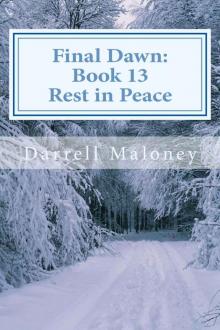 Rest in Peace
Rest in Peace This Changes Everything
This Changes Everything The Final Chapter
The Final Chapter It Can't Be Her
It Can't Be Her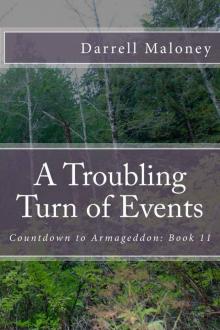 A Troubling Turn of Events
A Troubling Turn of Events The Blockade
The Blockade A Tearful Reunion
A Tearful Reunion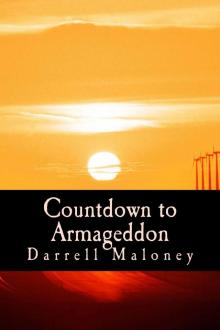 Countdown to Armageddon
Countdown to Armageddon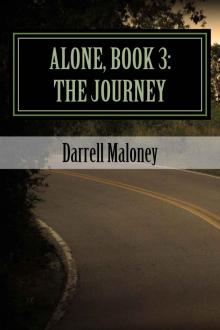 Alone, Book 3: The Journey
Alone, Book 3: The Journey The Army Comes Calling
The Army Comes Calling The Grim Reaper Comes Calling
The Grim Reaper Comes Calling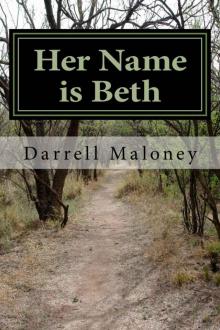 Her Name is Beth: Alone: Book 5
Her Name is Beth: Alone: Book 5 Red: The Adventure Begins
Red: The Adventure Begins Rise From The Ashes: The Rebirth of San Antonio (Countdown to Armageddon Book 3)
Rise From The Ashes: The Rebirth of San Antonio (Countdown to Armageddon Book 3) An Unkind Winter (Alone Book 2)
An Unkind Winter (Alone Book 2)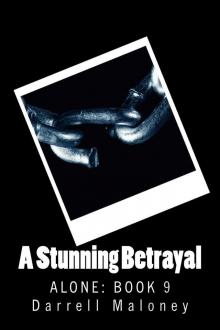 A Stunning Betrayal: Alone: Book 9
A Stunning Betrayal: Alone: Book 9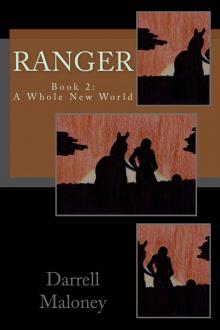 A Whole New World: Ranger: Book 2
A Whole New World: Ranger: Book 2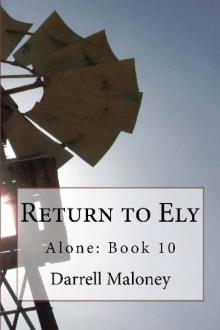 Return To Ely
Return To Ely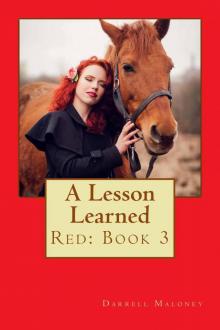 A Lesson Learned: Red: Book 3
A Lesson Learned: Red: Book 3 The Homecoming: Countdown to Armageddon: Book 5
The Homecoming: Countdown to Armageddon: Book 5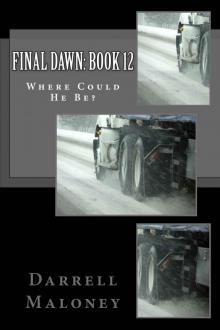 Final Dawn: Book 12: Where Could He Be?
Final Dawn: Book 12: Where Could He Be? An Acquired Taste
An Acquired Taste On Desert Sands: Alone: Book 6
On Desert Sands: Alone: Book 6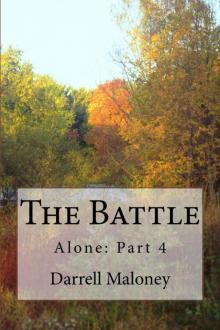 The Battle: Alone: Book 4
The Battle: Alone: Book 4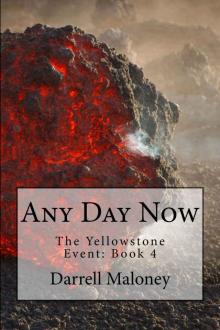 Any Day Now
Any Day Now Too Tough To Tame: Red: Book 2
Too Tough To Tame: Red: Book 2 No Help From Austin: Red: Book 5
No Help From Austin: Red: Book 5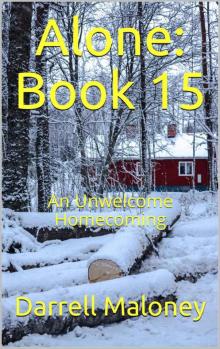 An Unwelcome Homecoming
An Unwelcome Homecoming A New Start: Final Dawn: Book 9 (Volume 9)
A New Start: Final Dawn: Book 9 (Volume 9)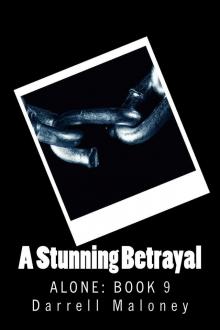 A Stunning Betrayal
A Stunning Betrayal An Undeclared War (Countdown to Armageddon Book 4)
An Undeclared War (Countdown to Armageddon Book 4)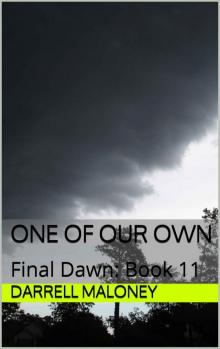 One of Our Own: Final Dawn: Book 11
One of Our Own: Final Dawn: Book 11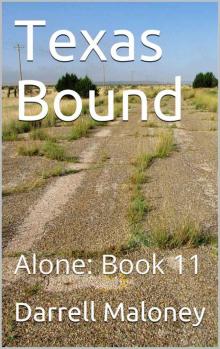 Texas Bound: Alone: Book 11
Texas Bound: Alone: Book 11 Payback: Alone: Book 7
Payback: Alone: Book 7 The Quest: Countdown to Armageddon: Book 6
The Quest: Countdown to Armageddon: Book 6 The Siege
The Siege The Yellowstone Event: Book 1: Fire in the Sky
The Yellowstone Event: Book 1: Fire in the Sky Return to Blanco (Red Book 4)
Return to Blanco (Red Book 4) The Search
The Search AFTER THE DUST SETTLED (Countdown to Armageddon Book 2)
AFTER THE DUST SETTLED (Countdown to Armageddon Book 2)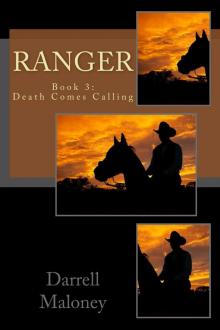 Death Comes Calling (Ranger Book 3)
Death Comes Calling (Ranger Book 3) A Long Road Back: Final Dawn: Book 8
A Long Road Back: Final Dawn: Book 8